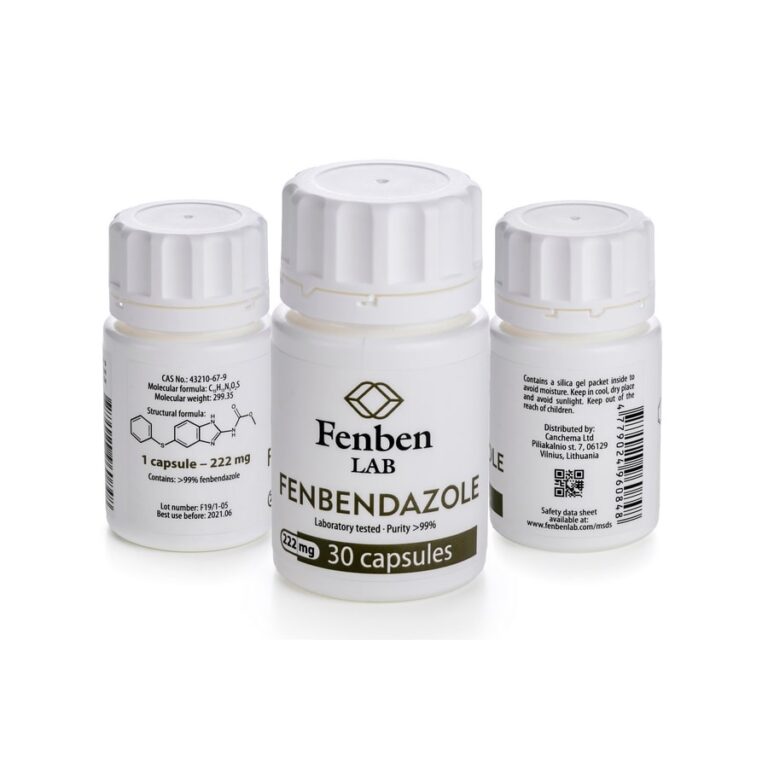Posts on Facebook and TikTok have been claiming that fenbendazole cures cancer. These claims are based on the anecdotal account of Joe Tippens, who claims that fenbendazole and other supplements cured his lung cancer. However, there is insufficient evidence for this claim.
The medication is an antiparasitic drug that blocks tumor cell growth. It acts by inhibiting the polymerization of tubulin, a component of microtubules. It also causes apoptosis, ferroptosis, and autophagy in cancer cells.
It kills cancer cells
Fenbendazole (methyl N-(6-phenylsulfanyl-1H-benzimidazol-2-yl) carbamate) is a benzimidazole compound with broad antiparasitic activity and microtubule-inhibiting activities that involve binding to the b-tubulin polymerization sites. The drug is used to treat parasites and worms in animals, such as roundworms, hookworms, whipworms, and some tapeworms. It is also being used as a cancer treatment in humans, under the name “the Joe Tippens Protocol.” This cancer treatment claims that fenbendazole can destroy tumor cells and prevent recurrence of the disease.
A Canadian veterinarian made videos on TikTok promoting a dog deworming medicine as a cure for human cancer, and this video was reposted by popular social media platforms. The video was debunked by a McMaster University researcher, Sheila Singh.
We examined the effect of fenbendazole on the radiation dose-response curves of EMT6 mammary carcinoma cells in vitro, under aerobic and hypoxic conditions. High-doses of fenbendazole significantly reduced the survival of these cells, especially under severe hypoxia. Furthermore, fenbendazole combined with the antineoplastic agent docetaxel produced additive cytotoxic effects on these cells. The results suggest that the chemical structure of fenbendazole resembles that of compounds known to act as radiosensitizers, and these observations support the idea that this medication may have anticancer properties. However, further research is needed to confirm these findings.
It stops the growth of cancer cells
Fenbendazole is an anthelmintic agent that has broad antiparasitic activity in a number of animal species. It also exerts cytostatic and antitumor effects in human cancer cells. The drug works by inhibiting the polymerization of microtubules, a protein that supports and gives shape to cells. It is a promising candidate for future cancer therapy.
In a recent study, we compared the growth of EMT6 tumors in BALB/c mice after treatment with either three daily fenbendazole injections or pembrolizumab monotherapy. Tumor growth was measured by calculating the time needed for each tumor to grow from its initial volume to four times that volume. We also performed a colony-forming assay to evaluate cell viability. Both 2-h and 24-h treatments of EMT6 cells with high concentrations of fenbendazole reduced the number of viable cells and the clonogenicity of these cells.
The results of our study suggest that patients may be misinformed about the use of fenbendazole in the treatment of cancer. Moreover, they may be unable to accurately select and filter medical information from the Internet. Physicians should enquire whether their patients are self-administering any orally ingested products, including dietary supplements and herbs, based on online social media reports that claim to be effective against cancer. The patients should be counseled about the potential risks of such actions.
It slows down the growth of cancer cells
Fenbendazole, a drug used to treat roundworm, hookworm and other parasitic infections, may also slow down cancer cell growth. It works by blocking the formation of microtubulin polymerization, which is necessary for cell-cycle progression. In addition, it inhibits the activity of cyclin B1, which is needed for the transition from G2 to mitosis. This prevents the onset of mitotic catastrophe, a cellular process that can be lethal to cancer cells.
To test this, researchers analyzed the effect of fenbendazole on the growth of EMT6 tumors in BALB/cRw mice. They compared unirradiated tumors to those that received three daily i.p. injections of fenbendazole and 10 Gy of x-rays. The results showed that irradiation caused significant inhibition of tumor growth, but the growth curves of the fenbendazole-alone and fenbendazole-plus groups were indistinguishable.
The study was supported by a grant from the Virginia and D.K. Ludwig Fund for Pancreatic Cancer Research. Its authors hope to extend their research through human clinical trials. The drug is already available as a parasitic treatment, but its effectiveness in treating pancreatic cancer has yet to be confirmed. Patients should always consult their physician before taking any supplements or drugs. Those who take fenbendazole should also avoid drinking alcohol and smoking. These actions can increase the risk of liver damage.

